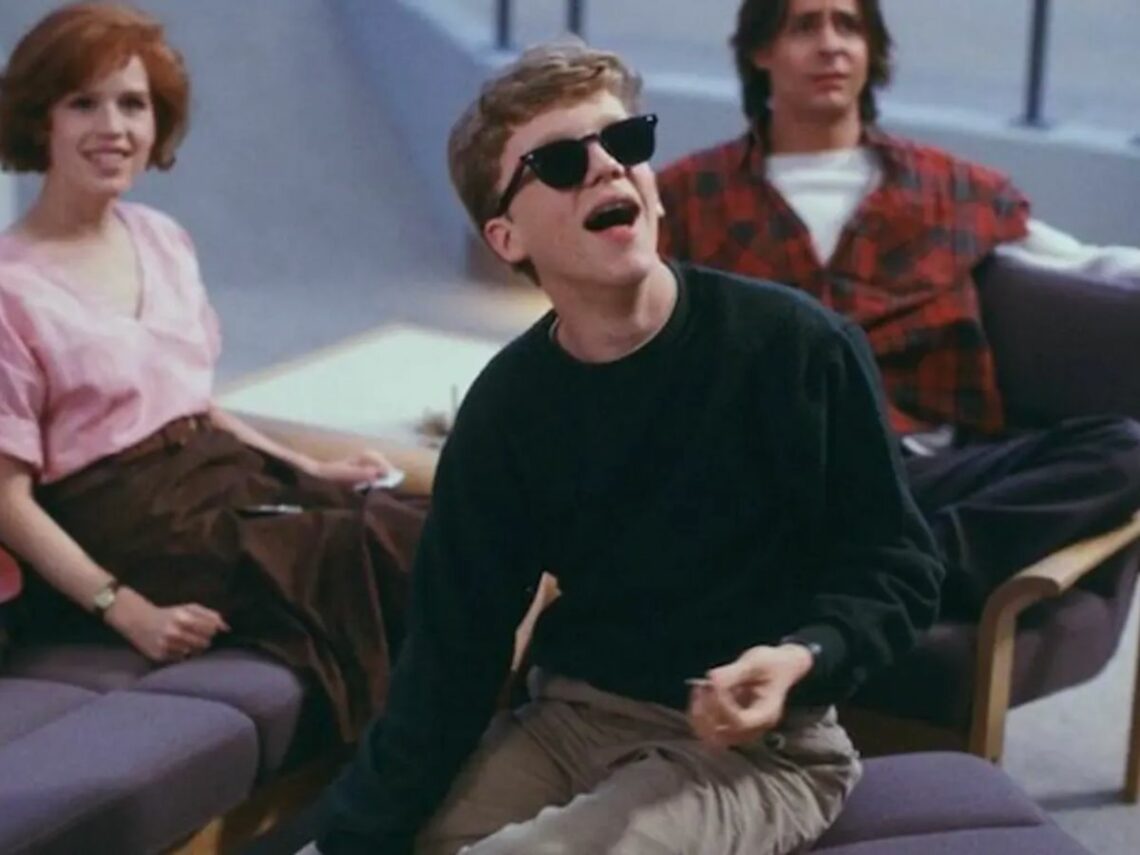Coming-of-age movies age faster than sun-baked milk, with youth culture changing at a great pace thanks to the rise of the internet. Still, there’s no excusing this disaster.
Often considered the godfather of coming-of-age genre filmmaking, 1980s icon John Hughes fused together with a romantic vision of American high school with the frivolous thrills of contemporary popular culture. Having directed only eight pictures across his filmography, Hughes’ greatest skill was in his screenwriting capabilities. He was known for bringing over fifty projects to fruition, with each one eliciting a happy-go-lucky tone and frenetic energy. The award-winning The Breakfast Club ranked among the director’s very best works upon its release in 1985, though time hasn’t been kind to the twee subject matter of the film.
Piecing together the iconography of a classic American establishment, we are introduced to the fictional Shermer High School, together with the unsightly cafeteria, dirty gym room, and gleaming honours board. Unusually quiet, five students enter the building one by one to attend all-day detention on a Saturday. Such are caricatures, representative of a particular clique, including the popular girl Claire Standish (Molly Ringwald), brainiac Brian Johnson (Anthony Michael Hall), jock Andrew Clark (Emilio Estevez), rebel John Bender (Judd Nelson) and outcast Allison Reynolds (Ally Sheedy).
With no real driving plot, bar the adolescent’s interactions with each other, the group of seemingly unconnected individuals begin to realise that actually, they’re not so different after all and that the struggles of teenage life are universally felt. Whilst this sentiment is pertinent, the journey that John Hughes takes to make such a message is extremely problematic, particularly in the light of contemporary attitudes.
Sheedy’s Allison Reynolds bears much of this load, exposing a dangerous precedent when Molly Ringwald’s Claire gives her a makeover, doing away with her “strange” looks to help her to become more socially acceptably pretty. Her hair is swept from her face, dark makeup removed, and she is given a pink dress to replace her monochrome clothes, receiving immediate male attention once she makes these changes. It’s a problematic scene that provides a glimpse into the systematic sexism that pervaded in the late 20th century, and still to this day, suggesting that the rose-tinted view of The Breakfast Club may simply be a romantic facade.
Consider too the stance of Molly Ringwald, who recently revisited the film for a piece in the New Yorker in light of the #MeToo movement. Discussing her relationship with rebel Bender in the film, Ringwald writes, “I can see now, Bender sexually harasses Claire throughout the film”.
Elaborating on the matter, she notes, “When he’s not sexualising her, he takes out his rage on her with vicious contempt, calling her ‘pathetic,’ mocking her as ‘Queenie.’ It’s rejection that inspires his vitriol…He never apologises for any of it, but, nevertheless, he gets the girl in the end”. Concluding, Ringwald states, “If attitudes toward female subjugation are systemic, and I believe that they are, it stands to reason that the art we consume and sanction plays some part in reinforcing those same attitudes”.
It is clear that John Hughes was infatuated with the romantic ideals of 1980s culture, providing a singular point of view on the state of times that totally blindsides reality. Regardless of the archaic cultural attitudes, Hughes’ film is simply a fantasy, a picturesque idea of how society wants to remember the past rather than how it should look back on it.
The problem is, it appears that Hughes really believes in the vision he is projecting, with little room for negotiation. Whilst The Breakfast Club is a troubled romanticisation of the 1980s, it is also an oversimplification of adolescence, as vapid as John Bender’s futile punch of triumph that bookends the reverie.
